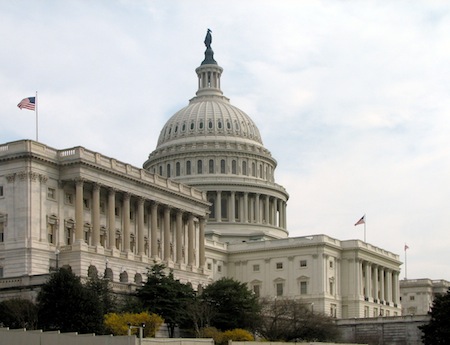House E&C Extends Small ISP Transparency Exemption

The smarter way to stay on top of broadcasting and cable industry. Sign up below
You are now subscribed
Your newsletter sign-up was successful
As expected, the House Energy & Commerce Committee voted unanimously to approve an amended version of HR 4596, Small Business Broadband Deployment Act.
The easy passage came after Communications Subcommittee chairman Greg Walden (R-Ore.) and Rep. Dave Loebsack (D-Iowa) introduced the compromise amendment.
The bill redefines a small ISP as 250,000 or fewer subs (the FCC exemption applied to systems with 100,000 and fewer subs or 1,500 or fewer employees), and the exemption sunsets after five years. The FCC is also directed to report to the Committee—and the Senate Commerce Committee, which also has principal jurisdiction over the FCC—within six months of enactment its recommendations for whether the exemption should be permanent and whether that 250,000 figure should be adjusted.
Republicans had wanted a permanent waiver and Democrats a term-limited one. Democrats won that one, though with the report caveat. The sub count was also closer to the Democrats opening bids (see below), so chairman Walden was true to his word that he was searching for common ground and compromise and thought it could be achieved.
At a Thursday markup on the bill, Walden pointed out that the smaller ISPs would still be subject to the 2010 network neutrality transparency rules, just not the enhanced version in the new Open Internet order.
He said the bill would protect the small ISPs who serve his rural district as well as Loebsack's. He also said the 250,000 cut-off "seemed better" than the 100,000 the FCC was using. Loebsack said his goal had always been to strike a balance between consumer protections and the costs of compliance for smaller ISPs and said he thought the bill now achieved that goal.
To achieve the status of law, it must still pass the full House, Senate, and get the President's signature, but its bipartisan support is an encouraging sign.
The smarter way to stay on top of broadcasting and cable industry. Sign up below
“NTCA–The Rural Broadband Association applauds the leadership of Subcommittee Chairman Greg Walden (R–Ore.), who sponsored this legislation that will exempt smaller broadband providers from enhanced transparency requirements," the group, which represents many of those small ISPs, said in a statement. "Instead of being subjected to these burdensome transparency requirements, this bill will allow NTCA members and other small rural broadband providers across the country to free up time and resources to focus on investing in networks and better serving consumers. We also particularly appreciate the efforts put forth by Rep. David Loebsack (D–Iowa) and other members of the committee who worked tirelessly to reach a compromise to ensure this legislation moves forward."
“On behalf of the small wireless operators we represent, we thank the Committee, and especially Chairmen Upton and Walden, Ranking Member Pallone and Representative Loebsack, for today’s bipartisan action to expand the small business exemption from some of the rules adopted by the FCC as a part of its Open Internet Order," said CTIA VP of government affairs Jot Carpenter. "CTIA has always been concerned that the burden of compliance would fall disproportionately on smaller carriers, and today’s common sense solution helps limit the burden on providers serving rural America. By expanding the range of providers to which the exemption applies, the Committee has advanced a sensible bill that protects small providers and corrects one of the regulatory excesses from the Open Internet Order. We hope the full House will approve the bill soon.”
Contributing editor John Eggerton has been an editor and/or writer on media regulation, legislation and policy for over four decades, including covering the FCC, FTC, Congress, the major media trade associations, and the federal courts. In addition to Multichannel News and Broadcasting + Cable, his work has appeared in Radio World, TV Technology, TV Fax, This Week in Consumer Electronics, Variety and the Encyclopedia Britannica.

